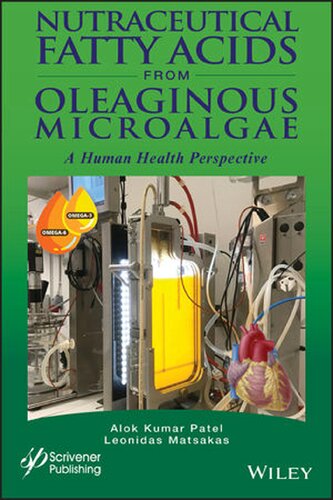

Most ebook files are in PDF format, so you can easily read them using various software such as Foxit Reader or directly on the Google Chrome browser.
Some ebook files are released by publishers in other formats such as .awz, .mobi, .epub, .fb2, etc. You may need to install specific software to read these formats on mobile/PC, such as Calibre.
Please read the tutorial at this link: https://ebookbell.com/faq
We offer FREE conversion to the popular formats you request; however, this may take some time. Therefore, right after payment, please email us, and we will try to provide the service as quickly as possible.
For some exceptional file formats or broken links (if any), please refrain from opening any disputes. Instead, email us first, and we will try to assist within a maximum of 6 hours.
EbookBell Team

0.0
0 reviewsOver the past several years, extensive research has been done on the microbial production of polyunsaturated fatty acids (PUFA). Regardless, research on the oleaginous microalgae used as feedstock for biofuels production and the overall story about the production of nutraceutical fatty acids from oleaginous microalgae has been very limited. This volume provides an exclusive insight on the production of nutraceutical fatty acids from oleaginous microalgae and their role on human health.
Some saturated and monounsaturated fatty acids can be synthesized by humans, whereas long-chain polyunsaturated fatty acids (PUFAs) such as α-linolenic acid and linoleic acid cannot and are deemed essential. The products of these acids, such as DHA, which is important for early visual and neurological development, are extremely important to human health. Replacing SFAs with omega-3 and omega-6 fatty acids in the diet reduce the risk of cardiovascular diseases and prevent Alzheimer's, bipolar disorder, and schizophrenia, among other benefits.
The ever-rising global demand for omega-3 & 6 PUFAs, however, cannot be met solely by fish oil, due to diminishing fish stocks and pollution of marine ecosystems, which has led to increased interest in alternative sustainable sources. Vegetable oils from genetically engineered plant oilseeds and microorganisms are two potential alternatives to fish oil, even though omega-3 PUFAs are highest in the latter. Although transgenic plants present numerous advantages, their production is dependent on seasonal and climatic conditions and the availability of arable land. Moreover, there are public concerns regarding the cultivation of transgenic crops in open ecosystems. These, together with regulatory issues restrict the large-scale production of genetically modified crops. Microorganisms, however, are known natural producers of microbial oils similar to those obtained from plants and animals and a possible source of nutritionally important o